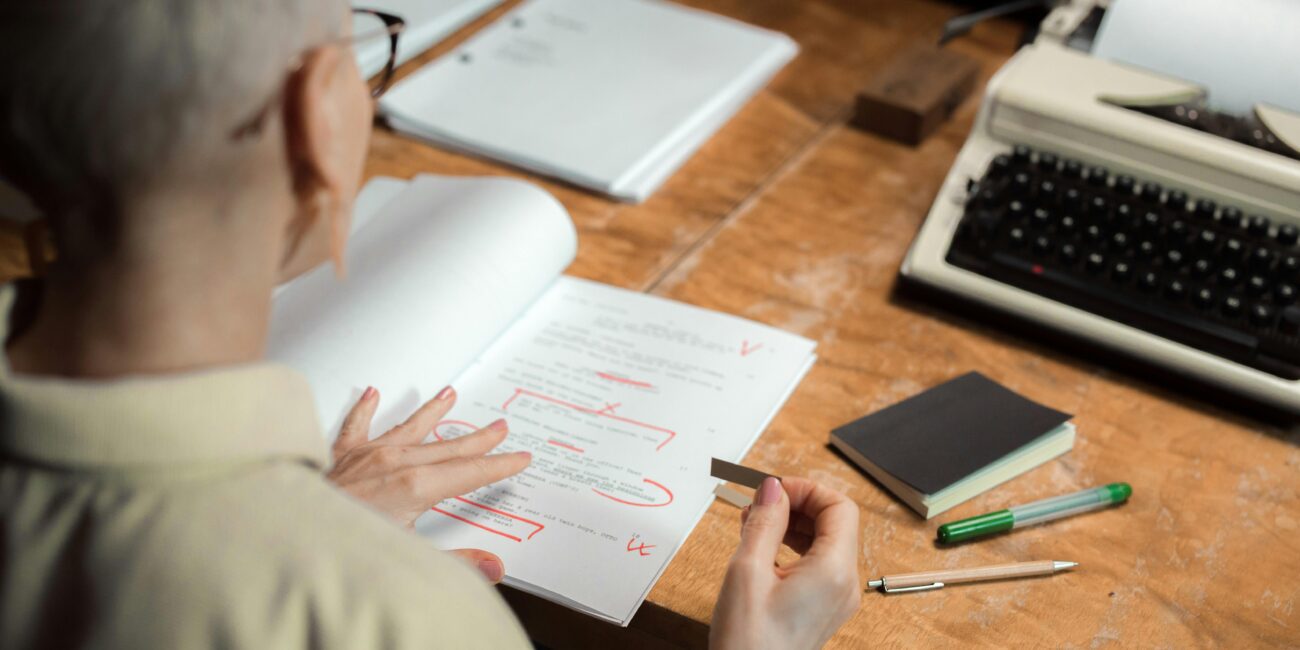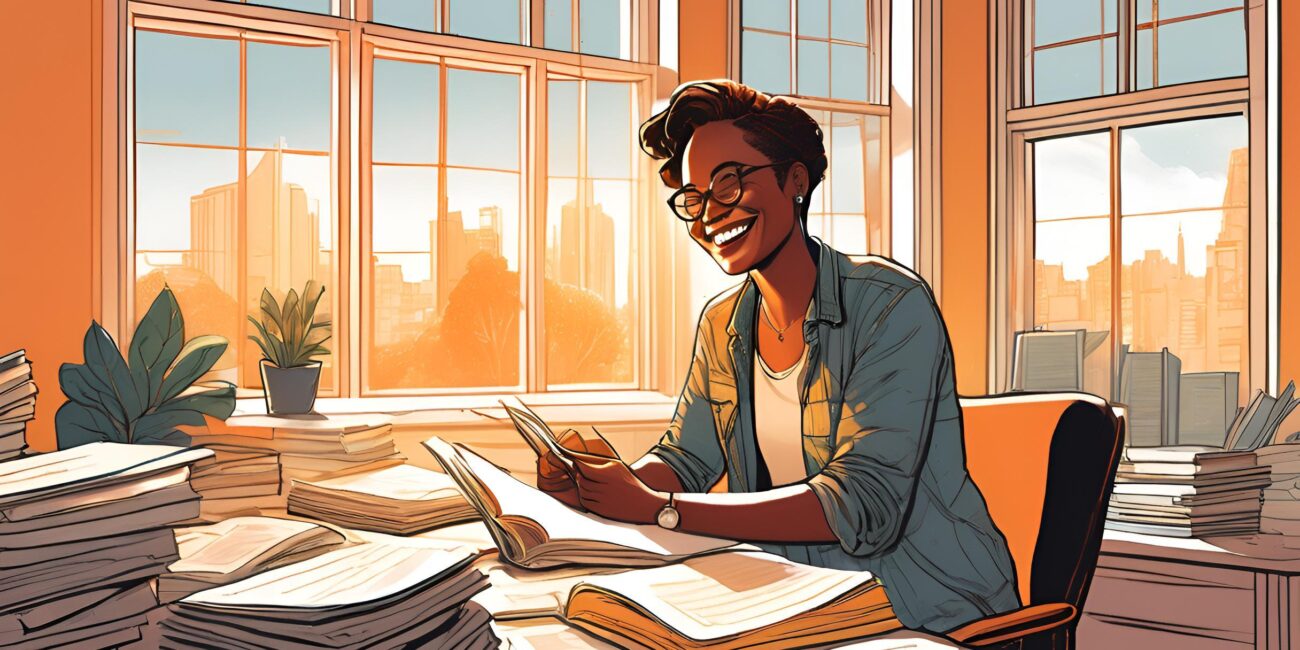How Important is Editing for Self-Published Authors, Really?

Welcome, one and all! I know it’s been a while since class was in session, but that’s no excuse for you to be rowdy. Please take your seats, and we can jump right into today’s lesson: the importance of editing for self-published authors.
I see some new faces in the room, so I’ll quickly get introductions out of the way. I’m Shaun van Rensburg, and, yes, wouldn’t you know it, I’m a writer. I’ve traditionally published several short stories over the years and, most recently, self-published a Regency romance novel.
So, today, I think I can share a thing or two that you might find helpful regarding self-publishing and how important a role editing plays.
Table of Contents
The Self-Publishing Editorial
Most of you should already be somewhat familiar with self-publishing – what it is, how it works – so I won’t discuss definitions in much detail. Instead, I want to talk about some of the benefits of editing and hiring a professional editor for your self-published book.
You see, while many people still tend to frown upon it – yes, I can see you shaking your head in the back there. Times are changing, and many authors are choosing the self-publishing route. Granted, there are disadvantages, but there are also quite a few advantages.
Taking It From the Top
One of the benefits – indeed, a major reason why I decided to self-publish – is creative control. Through self-publishing, you hold the power to do whatever you want with your manuscript (which is both liberating and very intimidating).
A great way to separate yourself from the increasing number of books published each day is to hire an editor. You all might be tired of me saying it, but editing is one of the most important parts of the writing and publishing process. A professional book editor … Sorry, whose hand is that? Yes, Jessica? Right, you are, my dear!
There’s always the possibility of doing it yourself, but I’ll get to why I’d advise against that in a minute.
Actually, before we continue, can anyone tell me why they think it matters to edit a manuscript at all? Come on, now! It’s a serious question. Wait, I’ll grab my marker and write it on the board…
Credibility and Reliability
Thank you, James. That’s one of the biggest reasons why editing should be done properly. I don’t know if any of you’ve ever picked up a book in a store and spotted several typos on page one.
Chances are slim to none. Why is that? It’s because traditional publishing houses ensure they hire professional editors, whether it’s in-house or freelancers.
Now, let me ask you this: how many of you’ve browsed Amazon and come across a book that piqued your interest, only to read the preview and realise that the book never saw the judgement of a red pen?
Oh, yes, I see a few hands going up! Okay, keep your hand in the air if you decided to buy it regardless…
My, my, that’s a significant loss of sales, don’t you think? Why is that? Yes, it’s because the reader appraised the product’s reliability and the author’s credibility and found it wanting. This brings me to the next point.
Losing the Reader and the Sale
It’s difficult to sell a bad product. That’s just business logic. It’s even more difficult when that product is one of millions of similar products.
The spark of interest in a manuscript wanes when readers suspect the editing process was rushed or (even worse) neglected.
This will, of course, decrease your book’s marketability drastically, resulting in fewer sales. Now, if you’re just publishing for your friends and family, that’s fine.
But most of you want to turn a profit, right? Well, it’s not likely to happen with a subpar product – which is what a poorly edited book is.
Professional Editing Services: Forgo at Your Peril

Look, I get it. In fact, most self-published authors out there get it. Professional editing may be expensive, time-consuming, and stressful. There may be one of several reasons why you think you’ll go without professional editing. I’m not going to tell you you’re wrong.
You can do whatever you want, remember? The creative control is in your hands. However, not everyone has the ability or means to edit a book effectively.
I see another hand. Yes, in the back? Sorry, can someone repeat what he said? I’m not as young as I used to be. He wants to know when I’ll get to the part about why I don’t recommend doing a DIY? Well, right now!
A Self-Published Book’s Editing Needs
Sorry, what was your name? Kent? Well, Kent, I just want to make one thing perfectly clear. I’m not saying you can’t do it on your own. I’m saying I don’t recommend it.
There’s a reason why editors exist. Authors stare at manuscripts and see them as children after a while. Blind to faults, quick to get offended by criticisms.
Some authors seem to forget that readers are customers. They deserve the best product you can give them.
And, remember, they’re not only paying for the benefit of experiencing a story but also the right to form an opinion of said story – and share it if they so choose.
Lessening the Blow of Reviews and Criticism
I’ve seen some posts online by indie authors that lament the fact (and sometimes even question the audacity of) readers who criticise their books.
What utter nonsense! Hogwash! Malarkey!
Don’t misunderstand me. I like bad reviews as much as the next person (which is not at all), but that is why editing is so important, especially when it comes to self-publishing.
For example, take one of my favourite self-publishing authors, Gail Carriger. She started as a traditionally published author, decided that the self-publishing route was better, and 30 or so books later, she still hires a proofreader, copy editor, and developmental editor.
In fact, in a talk she did with The Creative Penn, she says that “as far as [she’s] concerned, [a developmental editor] is a very necessary thing”.
Types of Editing for the Self-Published Manuscript
I’m sure we’ve spoken about the types of editing before, but I want to look at them in the context of self-publishing. It’s important to understand them and their order when you want to publish a manuscript yourself.
- Developmental editing is usually the first and most intensive (and expensive) part of the editing process. It deals with things like plot structure and character arcs. It’s usually pretty time-consuming.
- Copyediting is where the language comes into play, focusing on correcting grammar, syntax, punctuation, and consistency.
- Proofreading is the final step. It catches minor errors like typos and formatting issues that have slipped through the earlier stages.
If you decide to self-edit your manuscript, it’s good to approach the aforementioned with the eyes of an editor and not an author.
There are actually a lot of tools that might help you along the way, such as Grammarly and ProWritingAid, but they can’t replace the insight of a flesh and blood editor, unfortunately.
What’s that Kent? Goodness, I highly recommend sitting up front next time so I can actually hear you. Oh, you want to know what to look for in an editor? That’s an excellent question!
Finding a Good Editor for You

It’s important to find an editor that you’re comfortable working with. As much as I recommend working with professional editors, it’s important to note that they can make or break an artistic vision.
The wrong editor can change a book into something entirely different without changing it for the better.
I’m very happy with Blue Leaf Editing’s team and services, so they will always be my first recommendation, but if you need guidelines on what to look out for when trying to find a fit, here you go:
Do Your Research
Heed my, my dear students, the internet is rife with untrustworthy people. Not only that, but many editors out there may not understand what you’re trying to do with your manuscript. Check reviews, check their portfolios. Most editors will do a sample edit if you request one.
Know Your Budget
Different types of editing have different costs. Usually, an editor will either have a price list ready to send you or provide you with a quote. Discussing prices will also help you see if you and your prospective editor have a compatible way of communication.
Communication
In self-publishing Compliant Hearts, this was the most important part for me in the entire process.
I knew my vision for the novel, but I needed an editor who understood how to collaborate with me to bring out the best version of that vision.
If you’re afraid or uncomfortable to talk to your editor, it’s the wrong editor. Communication is very important, especially when it comes to editing as a self-published author.
Bottomline of Editing for Self-Published Authors
It seems we’re almost out of time, which is always such a pity! You know how I can drone on and on, but let me wrap things up so that you all can go on and scribble to your heart’s content.
So, to recap, self-published authors need to trust their editors, be it their inner editors or professionals.
This helps provide a quality story (and product) for readers to enjoy and helps with an author’s credibility and reliability. And the best thing to come from prioritising editing?
A loyal readership that may produce long-term success for an author. And, honestly, who doesn’t want that?
Well, there you have it, my dear students. I’ll leave you by stressing the importance of prioritising editing in your self-publishing journeys. No one can guarantee your success, but you can take steps to bring it that much closer.
All right, that’s it for today. Class dismissed. Oh, and Jessica, please see that Kent sits in front next time, won’t you?

